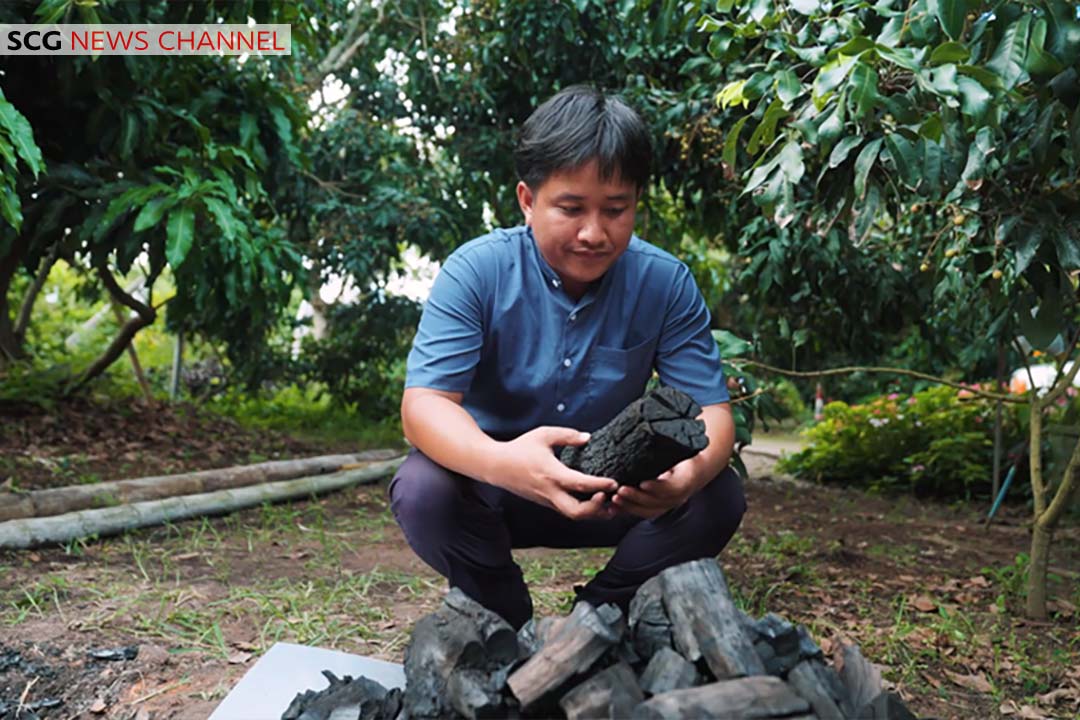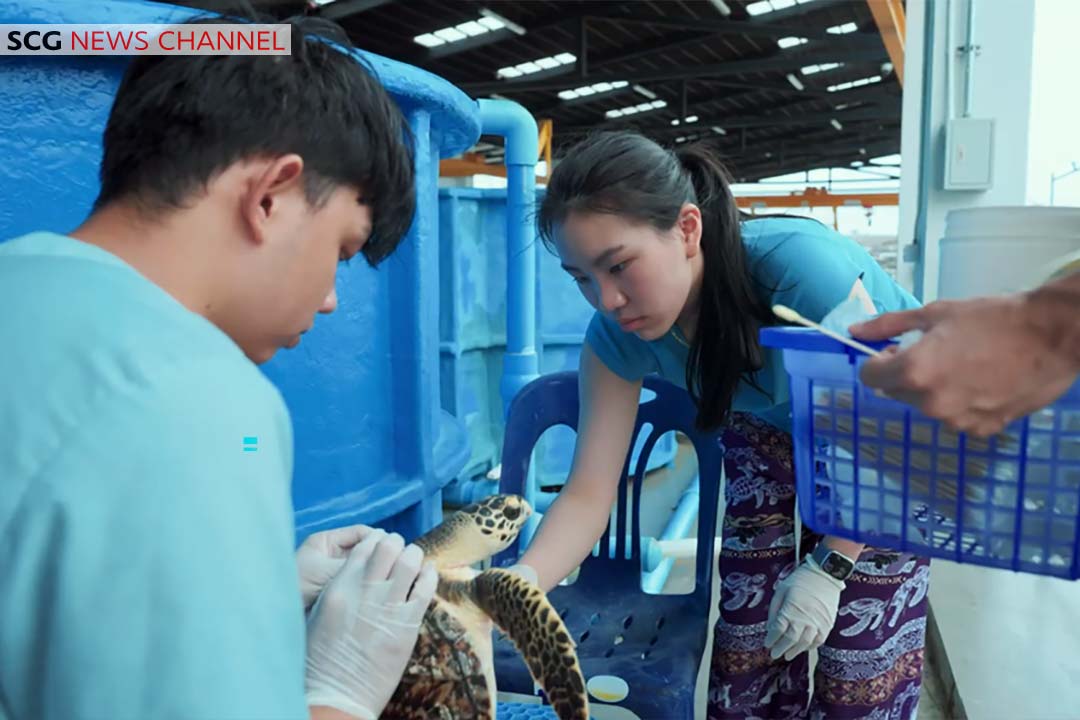While Thai people have become increasingly aware of environmental threats, it is evident that actual implementation remains limited. Today’s challenge involves motivating people to change their behavior on the path to net zero greenhouse gas emissions. SCG not only drives the organization toward this goal but also remains committed to transforming societal apathy into “taking action,” encouraging everyone to begin with nearby, simple activities that can be done regularly, while creating more accessible environmentally-friendly alternatives to transform passion into real impact.
As the world faces environmental crises and “Net Zero” is no longer a distant concept, the new generation of youth has created the phenomenon of “child heroes” rising to become leaders. This is reflected in the story of “Bank-Thanakorn Nanti,” a youth from the “Community Seedlings” project by SCG Foundation, a new-generation farmer creating change to reduce PM2.5 pollution by developing the “Carbon Reduction from Agricultural Waste Burning Through Biochar Kilns” project, serving as a model for community-level Circular Economy while transferring knowledge to youth in the area.

Bank explained his motivation for environmental work and emphasizing reduced burning practices. Northern residents and children have grown up with pollution-generating burning practices, causing respiratory problems for everyone, including himself. Recognizing that without intervention, the problem would continue worsening, he began taking action with nearby resources, applying his knowledge to create modified biochar kilns. Since his family and community members are farmers who annually burn waste materials from tree pruning, creating dust and smoke, biochar kilns offer low costs and universal accessibility. The burning process produces biochar that helps reduce carbon while enabling value-added products such as soil amendments or biochar soap, creating environmental solutions and generating community income.
Meanwhile, two earth-loving siblings representing the new generation, “In-Arinchaya Thongtaeng” and “Em-Arisa Thongtaeng,” founders of Below the Tides, are seriously restoring aquatic ecosystems in various forms, inspiring adults and peers to see that “we can do it.” Their serious environmental work began with their love for animals.

In and Em explained that they did not want to save the world but simply wanted to help turtles because they have loved animals since childhood and have long felt connected to nature. Learning that global warming and climate change impact marine ecosystems and may cause certain species to face extinction without environmental protection, they felt compelled to take action. They established a small group focusing on aquatic environments, including rivers, canals, and seas, before expanding to address climate change issues.
“Rising global temperatures endanger marine animals, so we wanted to create impact, whether small or large, because it’s better than doing nothing. If marine animals ultimately face extinction, at least we know we did our best. The future depends on what we do today,” In stated.

Em emphasized: “Some people think the world will wait for us to gradually change, believing there is still time for solutions, but no one knows how long the world can wait. The biggest problem is that some people still refuse to acknowledge climate change, acting as if nothing is happening. There are still people who say it’s not our responsibility. If we continue without action, the frightening reality is that our descendants may never have the opportunity to see the world as we once knew it.”
Bank concluded: “I am just a small farmer who does not expect to create monumental change. What I can do is start with myself, then gradually pass it on. We may not be able to change the entire world, but perhaps changing the world can begin with changing ourselves.”
Because collaboration represents tremendous power, SCG believes everyone is part of the transformation, whether children, adults, communities, or various organizations can contribute to environmental problem-solving through serious and continuous action. SCG has established cooperation with various government and private sector agencies, utilizing communication and technology to address environmental problems continuously.
Published on: Jul 9, 2025